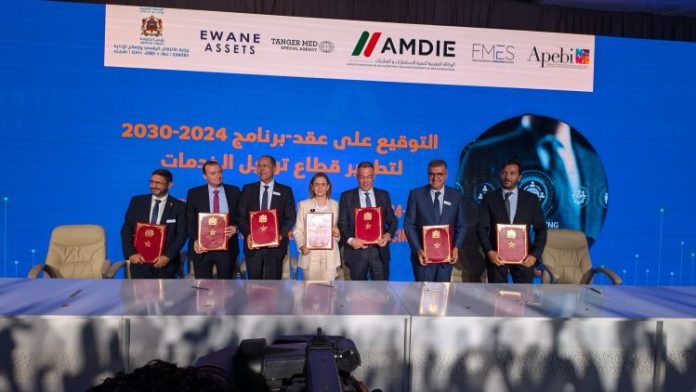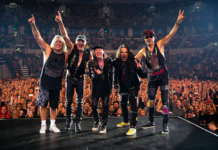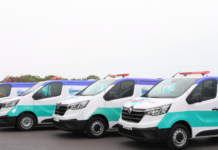After much anticipation, Morocco has officially launched its “Digital 2030” strategy, a bold roadmap aimed at positioning the Kingdom at the forefront of Africa’s digital transformation. This initiative represents a pivotal step toward integrating cutting-edge technologies into public services, job creation, and driving economic growth. With a clear focus on innovation, Morocco is setting its sights on becoming a key player in the global digital economy by 2030.
The newly unveiled strategy builds on royal directives and is centered around leveraging digital tools to enhance the nation’s competitiveness, create employment opportunities, and improve public service accessibility. Through targeted investments and clear goals, the Kingdom is laying the groundwork for a future where technology and progress go hand in hand.
Goals, investments, and numbers behind the strategy
The “Digital 2030” strategy is grounded in concrete objectives, backed by significant investments to fast-track Morocco’s digital evolution. By 2030, the country aims to generate 40 billion dirhams (DH) in digital exports—more than double the 17.9 billion DH recorded in 2023. This growth will be fueled by the expansion of high-value sectors, such as tech startups, artificial intelligence (AI), and digital outsourcing, with revenue from outsourcing alone projected to soar from 25 billion DH in 2026 to 40 billion DH by 2030.
On the employment front, the digital sector is expected to create 270,000 jobs by 2030, a significant increase from the 140,000 positions available in 2023 and the 190,000 projected for 2026. These job creation targets will be supported by various incentives, such as employment bonuses, training subsidies, and tax breaks aimed at attracting both local talent and foreign investment. Furthermore, Moroccan tech SMEs will receive dedicated support, including grants and digital maturity assessments, to aid their digital transformation.
A focus on startups and infrastructure development
Startups are a key pillar of the strategy, with plans to grow from 1,000 startups in 2026 to 3,000 by 2030, including the creation of one or two “unicorns” (startups valued at over $1 billion) and 10 high-growth “gazelle” companies. This expansion will be supported by increased funding, with capital raised expected to jump from 2 billion DH in 2022 to 7 billion DH in 2026.
In terms of infrastructure, the national “High-Speed Plan 2” aims to bring internet access to 1,800 underserved rural areas by 2026. By 2030, fiber-optic connections are expected to reach 5.6 million households, and 5G networks will cover 70% of the population, up from just 25% in 2023. Additionally, 6,300 urban public sites will be equipped with fiber optics by 2026, ensuring a minimum internet speed of 20 MB/s, compared to the current 2 MB/s in some areas.
Digitizing public services for a modernized government
One of Morocco’s key aspirations is to break into the top 50 countries in the United Nations’ E-Government Development Index (EGDI), aiming to become the leader in Africa for digital governance. To achieve this, the government is focused on streamlining access to public services, reducing processing times, and simplifying procedures for both citizens and businesses. The goal is to achieve over 80% user satisfaction, cut processing times by 50%, and reduce administrative procedures by 40%.
Public digital services will be designed with inclusivity in mind, ensuring that even remote and vulnerable populations have access to these improvements. The strategy includes the establishment of local digital assistance centers throughout the country, ensuring equitable access to e-services for all, regardless of location.
Additionally, a modern legal framework will be developed to support the digital transformation of the administration. This includes adopting international standards and ensuring robust data protection measures. User satisfaction will be continuously monitored to enhance the quality of digital public services.
Key catalysts: Digital talent, cloud, and artificial intelligence
Morocco’s digital revolution hinges on three main catalysts: developing digital talent, adopting a hybrid cloud infrastructure, and integrating artificial intelligence (AI).
To build a strong digital ecosystem, Morocco aims to train 100,000 new tech professionals annually by 2030. This will be achieved through increased capacity at educational institutions and intensive programs such as coding boot camps. A “Tech Visa” will also be introduced to attract international talent, boosting the country’s competitiveness in the global tech market.
In terms of cloud infrastructure, Morocco is opting for a hybrid model combining a sovereign cloud, which will handle sensitive data under national regulations, and a public cloud for businesses. This approach ensures data security while attracting major international cloud players. Additionally, national cloud services will be rolled out to support both public sector needs and private companies, further advancing the country’s digitalization efforts.
AI will play a critical role in Morocco’s digital transformation, with the strategy laying out plans for high-impact AI projects aimed at improving public services and helping local businesses adopt emerging technologies. Educational and awareness initiatives will accompany this shift to ensure businesses and the general public are well-prepared for AI integration.
Strategic partnerships to propel the digital economy
During the launch of “Digital 2030,” three key partnerships were signed. The first, between various ministries and economic actors, formalizes a program contract to develop the outsourcing sector, aiming to create 130,000 jobs by 2030. The second, with academic institutions, provides for 550 doctoral scholarships by 2026 to support research in advanced technologies. The third, with the Ministry of Economic Inclusion, focuses on enhancing vocational training in the digital field.
Morocco’s “Digital 2030” strategy signals a new era of technological advancement, one that promises to enhance the country’s economic resilience, create thousands of new jobs, and position Morocco as a digital leader not just in Africa, but on the global stage.





